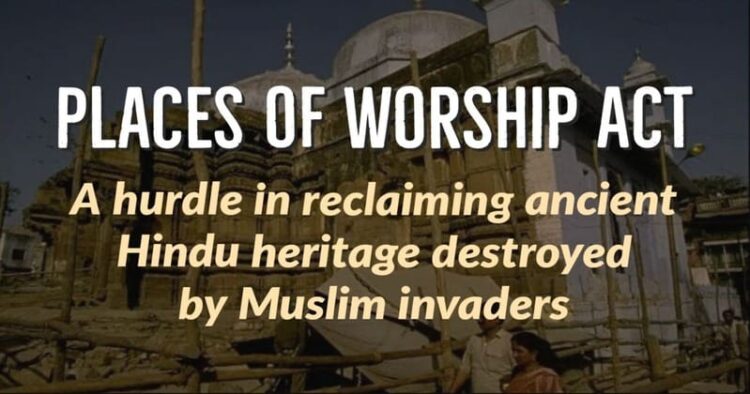The ‘Places of Worship (Special Provisions) Act, 1991’ currently prohibits the conversion of any place of worship and the maintenance of the religious character of such places as it was on August 15, 1947. However, the recent call for its repeal emphasises concerns about the Act’s perceived discriminatory nature.
During the Zero Hour session in the Rajya Sabha on Monday, February 5, Bharatiya Janata Party (BJP) leader and Member of Parliament Harnath Singh Yadav raised the issue of the Places of Worship Act, 1991, and urged for its abolishment. Yadav argued that the Act, enacted in 1991, creates distinctions between revered gods like Bhagwan Ram and Krishna, both considered incarnations of Bhagwan Vishnu, thereby undermining the religious rights of Hindus, Jains, Sikhs, and Buddhists.
Critics argue that the legislation creates a disparity between Hindu deities Ram and Krishna. The Act freezes the status of places of worship as of the specified date, allowing mosques built on allegedly demolished Hindu Mandirs to retain their status while not affording the same protection to other religious sites.
Members of Parliament Harnath Singh Yadav expressed dissent and contend that the Act indirectly justifies the historical occupation of places of worship by foreign invaders, especially during periods of conquest. The demand to abolish the Act stems from a desire to rectify what critics see as an injustice and to establish equal protection for all places of worship, irrespective of their religious affiliation.
Proponents of the Act argue that its intent is to maintain the communal harmony prevalent at the time of its enactment. They contend that altering the law may open the floodgates to disputes and alter the religious landscape of the country. The Act was enacted to freeze the status of religious places to avoid potential conflicts and promote peaceful coexistence.
The debate in Parliament has triggered discussions on the broader implications of the Act and whether it aligns with the principles of religious freedom enshrined in the Constitution. Some lawmakers argue that a comprehensive review of the legislation is necessary to address concerns related to discrimination and historical grievances.
As the demand for the repeal of the ‘Places of Worship Act’ gains traction in Parliament, it remains to be seen whether the Government will consider amendments to address the alleged discriminatory aspects and strike a balance between religious sentiments and the principles of justice and equality. The ongoing debate reflects the complex interplay between historical grievances, religious freedom, and the role of legislation in shaping the cultural and religious landscape of the nation.




















Comments